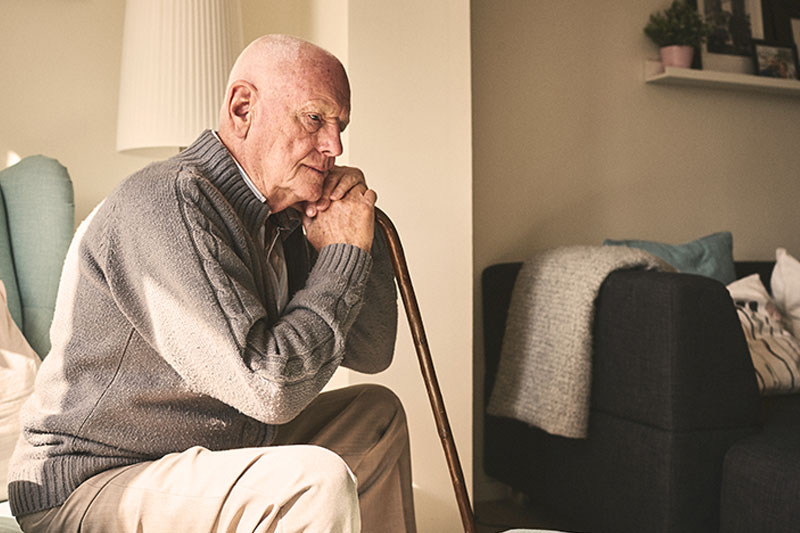
Senior depression is a growing concern for many families, but our home care in Lutherville and nearby areas can help.
After visiting with family members and revisiting cherished traditions and memories throughout the holiday season, it is typical for a feeling of nostalgia and sorrow to emerge for the elderly. And while some amount of temporary post-holiday let down can be anticipated, it’s important to be aware that it could develop into senior depression. Depression is a serious mental health condition that is certainly widespread among seniors, but it is not a normal element of aging.
How can you determine whether someone you love has crossed the line into depression – and, what can you do to help?
First, it is important to be aware of the risk factors for senior depression, including:
- Loneliness and isolation
- A non-active lifestyle
- Stress
- Chronic health issues
- Trouble sleeping
- Addictions
- A family history of depression
If an older person you love fits into any of those classifications, or if you’re simply worried that the senior might be on the threshold of depression, watch out for these warning signs:
- Persistent feelings of anxiety, guilt, low self-esteem, hopelessness, sadness, or emptiness
- Restlessness, fidgeting, or irritability
- A lack of interest in interacting or participating in previously-enjoyed activities
- Tiredness and listlessness
- Changes to eating or sleeping patterns
- Problems with concentration, memory, or decision-making
- Thoughts or conversations around the topics of death or suicide
- If you suspect depression in a senior you care about, take action immediately. Depression must not be brushed off as something the person needs to “get over.” It is a chronic condition that calls for medical attention.
A doctor will need to evaluate the senior, and can then put together a treatment program, which might include:
- Medications: There are effective prescriptions available that can make a tremendous impact on the way the older adult feels by balancing mood-affecting hormones.
- Counseling: A psychologist or other licensed mental health care professional can help the individual talk through emotions and utilize treatment solutions such as cognitive-behavioral therapy.
- Brain stimulation: If a loved one isn’t responding well to conventional depression therapeutic treatments, ECT or rTMS may be considered, which utilize electrodes or magnets to impact the brain directly.
There are also actions you can take to help prevent senior depression, such as by encouraging:
- Socialization and participation in enjoyable activities, including exercise. (Participating with the elderly individual will offer added motivation and support.)
- Following a healthy diet and getting at least seven hours of sleep nightly.
- Speaking up about their mental health worries and needs.
An in-home caregiving companion from Absolute Companion Care, an award-winning provider of home care in Lutherville, MD and the surrounding areas, can be extremely helpful for seniors who are in danger of or experiencing depression. Our care providers are fully trained and experienced in meeting an array of senior care needs at home, while providing the compassionate companionship to give socialization a boost and to bring a spark of joy to each day.
Contact our aging care experts at 410-357-9640 for a free in-home consultation for additional details on how we can help improve overall health and wellness for the seniors you love with individualized care in the home.
